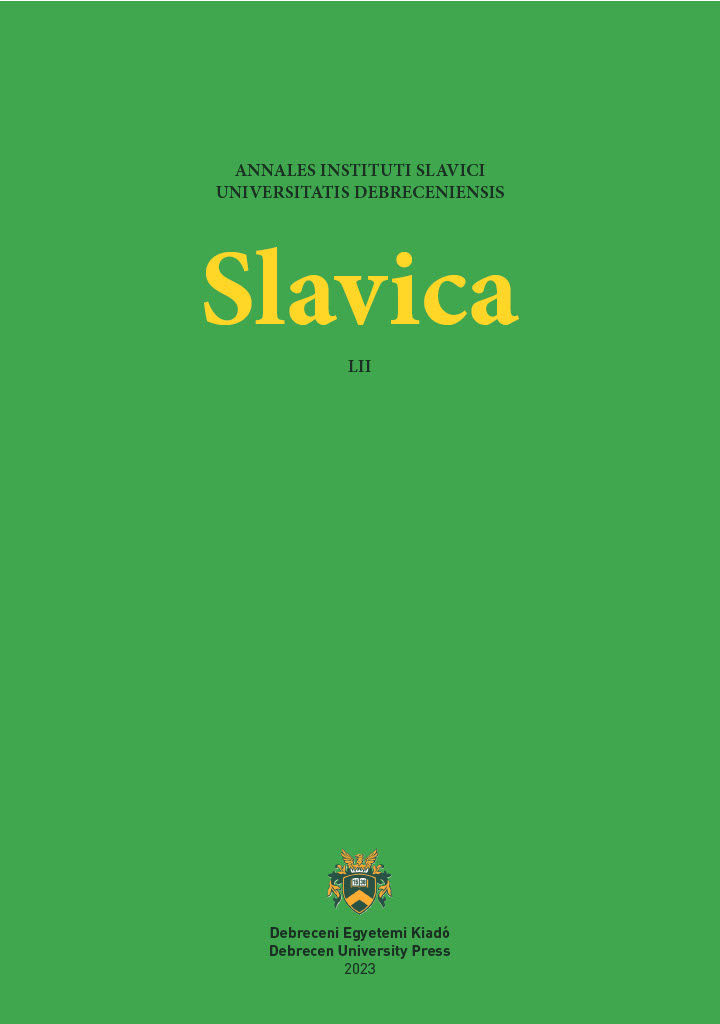Interferences in the Field of Literature and Philosophy: Contact Points in the Poetry of Russian and Hungarian Authors: Dukkon Ágnes: A veszélyes szépség útjain. Eszmék, témák, kapcsolatok a klasszikus orosz irodalom világában, L'Harmattan Könyvkiadó – Uránia Ismeretterjesztő Társulat, Budapest, 2021, 340. p. ISBN: 978-963-414-702-2
Author
View
Keywords
License

This work is licensed under a Creative Commons Attribution-NonCommercial 4.0 International License.
This is an open access article distributed under the terms of the Creative Commons Attribution License (CC BY-NC 4.0), which permits unrestricted use, distribution, and reproduction in any medium, provided the original author and source are credited.
How To Cite
Abstract
The Hungarian literary scholar Ágnes Dukkon set herself a great task to complete in her new monograph by undertaking to offer a broad overview of the entire 19th century epoch of Russian literature through monitoring the transformation and evolution of the literary motive of dangerous beauty [ужасная красота]. While focusing on the concrete correspondences between a variety of literary worlds, the study presents interpretations of works by A.S. Pushkin, M.Y. Lermontov, F.I. Tyutchev, N.V. Gogol, I.S. Turgenev, F.M. Dostoyevsky, M.Y. Saltikov-Shchedrin, N.S. Leskov, and L.N. Tolstoy. At the same time, however, the author of this monograph never fails to keep in mind the conceptual context of the artistic texts by analyzing their relationship with the topical contemporary philosophical ideas of the age. For the Hungarian readers, the chapters incorporating the conclusions of research aimed at Russian–Hungarian connections, conducted with the methodology of historical poetics, comparative literary studies, intertextuality, and biographism, are of special interest. The scholarly findings of this renowned researcher would definitely deserve to be translated in the future into an international language.

 https://doi.org/10.31034/052.2023.08
https://doi.org/10.31034/052.2023.08